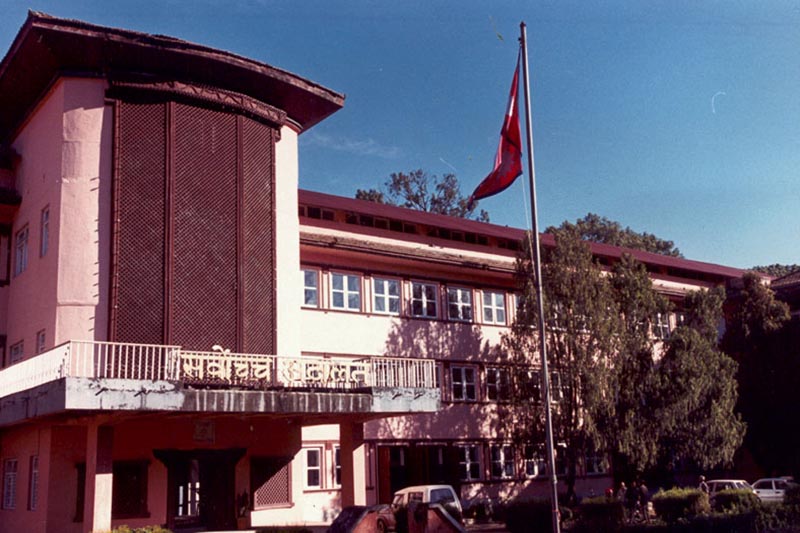SC rules against invoking BOPA for cheque bounce cases
Kathmandu, July 31
The Office of the Attorney General is preparing to file a review petition against the Supreme Court’s recent verdict that rules against invoking Banking Offence and Punishment Act 2008 for cheque bounce cases.
A division bench of Justices Dambar Bahadur Shahi and Kumar Regmi gave this ruling in a case filed by the government against Nirmala Sodari, a resident of Kailali district. The SC passed its verdict on June 24, the written text of which was prepared yesterday.
The SC said that since Negotiable Instruments Act 1977 incorporated comprehensive provisions related to cheque bounce cases, adjudication of such cases should be done under NIA and not BOPA.
If the precedent set by the SC applies to all similar cases, cheque bounce cases will not be a criminal case where the government will be the plaintiff.
Under the existing provisions, the affected party may file an FIR at the police office under Government Case Act following which the police can arrest the accused and carry out investigation.
Spokesperson for the OAG Sanjib Raj Regmi said his office was preparing to file a review petition against the verdict as the SC verdict had created confusion. “This verdict does not say what will happen to the cheque bounce case being investigated by police and those cases that are sub-judice in the commercial benches of high courts,” he said and added that the Attorney General had directed government attorneys today to pursue cheque bounce cases as per BOPA. “Our office is of the view that the SC’s recent order is limited to that case only. Our office has therefore decided that if any legal challenge arises against our investigation, we will seek legal recourse separately in each case,” Regmi added.
Remgi said that the SC’ verdict was not inconsistent with the SC’s past precedent where it had said that when two laws could be invoked, then the latest law should be given priority. BOPA is the latest law to govern the issues of bounced cheques.
Regmi said BOPA incorporated adequate provisions to ensure justice for victims and deterrence against the erring parties. “Since BOPA can send erring parties to jail, besides imposing fine equal to the amount in question, we have seen that the moment the affected parties lodge FIRs against erring parties, the latter becomes ready to pay the amount to the affected parties,” Regmi said, adding, “If cheque bounce issues are filed under NIA, then victims will have to do everything. They will have to collect evidence and pursue their case till the final tier of the court which may further victimise the victims.”
Regmi said if cheque bounce issues were not addressed by BOPA, then it could adversely affect the banking system. “Cheques should be as good as cash and that will happen only when cheque bounce issues are dealt with by BOPA,” he added.
Senior Advocate Surendra Kumar Mahto said there was a gap between the SC verdict and the jurisprudence. “Often the latest law gets precedence over an old law, but in this case the SC ruled that the cheque bounce issues should be governed by NIA and not BOPA. Mahto said it was the state’s responsibility to protect the banking system and if cheque bounce issues were not governed under BOPA, then that could adversely affect the banking system.
The SC quashed the conviction verdict passed against Sodari by Dipayal High Court on 11 July 2018.
Ganesh Kumar Rawal had filed an FIR against Sodari after two cheques worth Rs 1,885,000 issued by Nirmala Sodari bounced.
It also said that in a situation when litigation can be filed under more than on law, such litigation should be filed as civil litigation unless it negatively affects the victim.
The court ruled that when a case can be filed under both criminal and civil law, then the law that helps maintain peace in society; regulate conduct between individuals and ensures that the affected party gets justice should be invoked.






